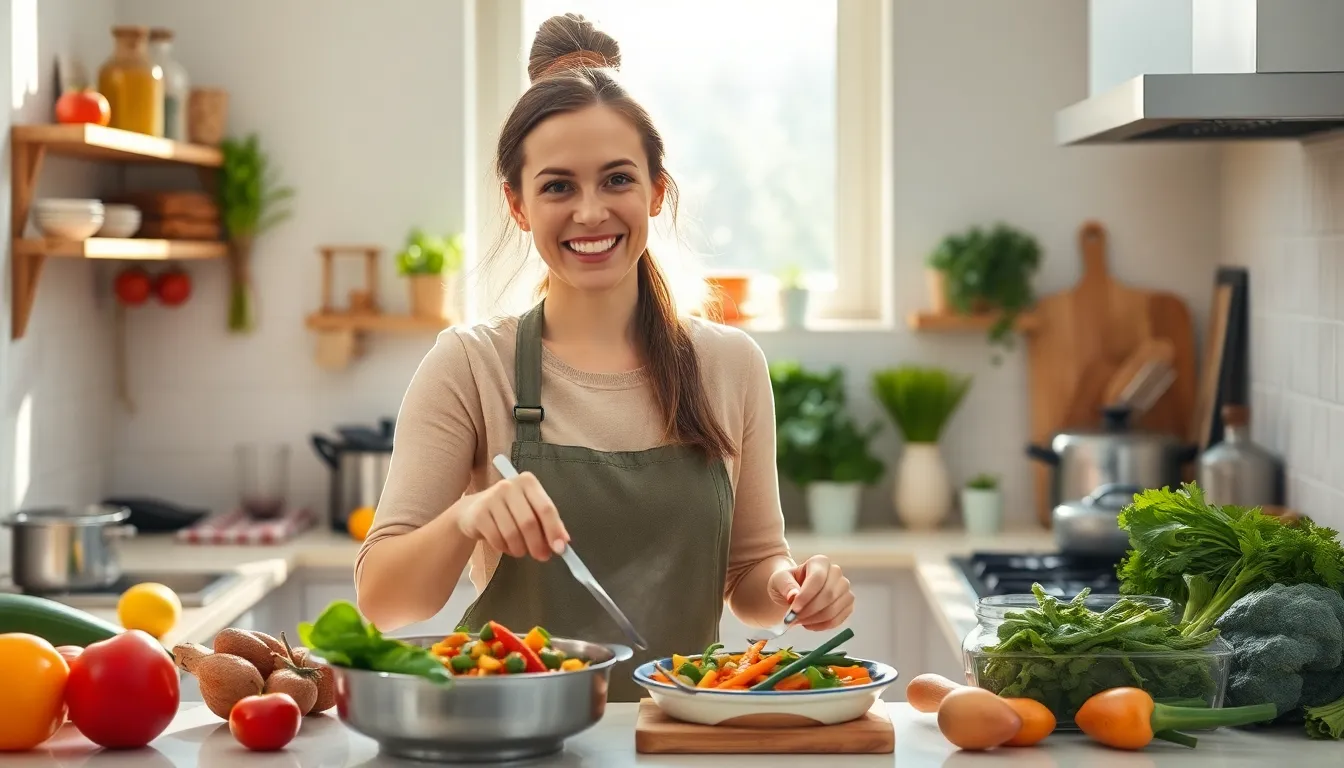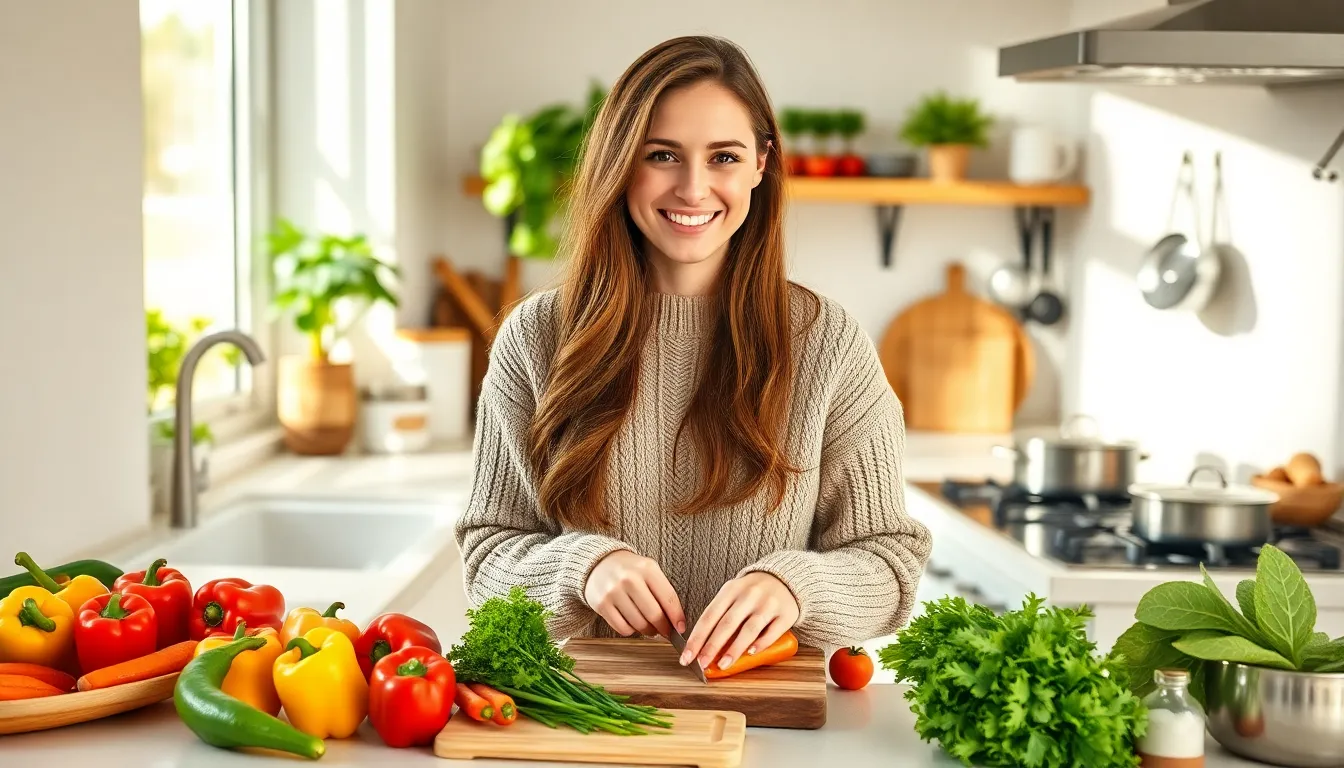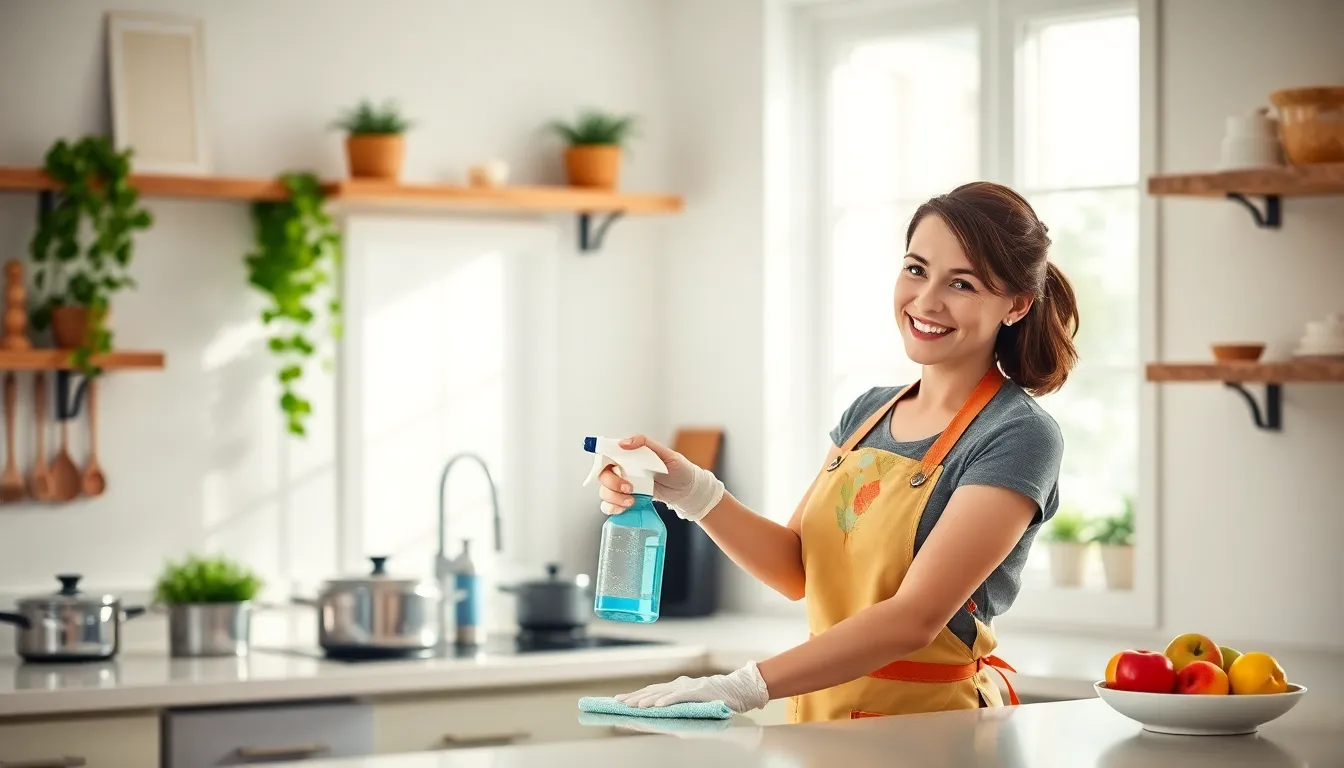Cooking can often feel overwhelming, especially after a long day. The pressure to create a delicious meal while juggling a busy schedule can lead to unnecessary stress. However, it doesn’t have to be this way. Stress-free cooking is all about simplifying the process and enjoying the experience in the kitchen.
By embracing a few key techniques and strategies, anyone can transform their cooking routine into a more enjoyable and relaxed activity. From meal prepping to using versatile ingredients, there are countless ways to make cooking less daunting. Discovering these methods not only saves time but also allows for creativity and exploration in the kitchen, turning everyday meals into delightful experiences.
Table of Contents
ToggleWhat Is Stress-Free Cooking?
Stress-free cooking refers to an approach that simplifies meal preparation, making it enjoyable rather than overwhelming. This technique emphasizes efficiency and creativity, allowing individuals to focus on the culinary experience.
Key elements of stress-free cooking include:
- Meal Prepping: Prepping ingredients or entire meals ahead of time minimizes weekday cooking stress. Planning ahead allows for streamlined cooking sessions with less time spent in the kitchen during busy days.
- Versatile Ingredients: Using adaptable ingredients, such as grains, proteins, and fresh vegetables, promotes easier meal creation. These components can combine in various ways to produce multiple dishes, reducing food waste.
- Simple Recipes: Adopting straightforward recipes that require fewer steps and ingredients encourages cooking confidence. Recipes with minimal complexity enable quick execution, making it easier to enjoy the process.
- Mindful Cooking: Engaging fully in the cooking activity cultivates a positive mindset. Focusing on flavors and techniques turns cooking into a relaxing experience instead of a chore.
- Flexible Timing: Allowing flexibility in cooking times accommodates busy schedules. This adaptability ensures that meal preparation fits seamlessly into an individual’s routine without added pressure.
By implementing these strategies, cooking transforms from a daunting task into an enjoyable experience marked by creativity and satisfaction.
Benefits of Stress-Free Cooking

Stress-free cooking offers several advantages that enhance the overall cooking experience. By implementing specific strategies, individuals can enjoy cooking more while reducing associated stress.
Time-Saving Techniques
Time-saving techniques streamline the cooking process. Meal prepping allows individuals to prepare ingredients in advance, cutting down weekday cooking time. Batch cooking enables the preparation of multiple servings at once, providing quick meal options throughout the week. Utilizing one-pot or sheet-pan recipes minimizes dishwashing and simplifies cleanup. Additionally, keeping basic pantry staples, like canned beans and frozen vegetables, speeds up meal assembly. These methods lead to efficient cooking sessions and more time for relaxation or social activities.
Improved Meal Enjoyment
Improved meal enjoyment hinges on a stress-free environment in the kitchen. Utilizing adaptable ingredients enhances creativity, allowing for diverse meal variations without significant effort. Simple recipes that require fewer steps encourage experimentation without intimidation, fostering confidence in culinary skills. Engaging in mindful cooking promotes an appreciation for the process, transforming preparation into a pleasurable activity. When flexibility in timing exists, individuals can savor their cooking experience, turning ordinary meals into delightful occasions that cultivate joy and satisfaction.
Essential Tools for Stress-Free Cooking
Having the right tools can significantly enhance the cooking experience, making it efficient and enjoyable. Below are key kitchen gadgets and organizational strategies that contribute to stress-free cooking.
Must-Have Kitchen Gadgets
- Chef’s Knife: A versatile knife aids in quick and precise chopping, dicing, and slicing.
- Cutting Boards: Multiple boards, preferably in different colors, prevent cross-contamination for safe food preparation.
- Measuring Cups and Spoons: Accurate measurements streamline recipe execution, ensuring consistent results.
- Mixing Bowls: Nesting bowls of various sizes facilitate mixing ingredients and storing leftovers.
- Food Processor: This gadget speeds up chopping, slicing, and blending tasks, saving time during meal prep.
- Nonstick Bakeware: Nonstick pans reduce the need for oil and make cleanup simpler.
- Instant Pot or Slow Cooker: These appliances offer convenience through hands-off cooking, allowing for meal preparation without constant monitoring.
- Mandoline Slicer: A mandoline makes uniform slices quickly, useful for salads and garnishes.
Organizational Tips
- Keep a Well-Stocked Pantry: Maintain essential ingredients such as grains, beans, spices, and canned goods to expedite meal planning.
- Use Clear Containers: Store ingredients in clear, labeled containers for easy access and inventory management.
- Establish a Meal Prep Station: Designate a workspace for meal preparation that combines tools and ingredients to streamline the process.
- Create a Weekly Meal Calendar: Planning meals in advance reduces last-minute decision-making and encourages a balanced diet.
- Incorporate Batch Cooking: Prepare larger portions of meals on less busy days to store for quick reheating during the week.
- Utilize Vertical Space: Install shelves or racks to optimize cabinet space, making frequently used items easily accessible.
- Hone Your Knife Skills: Improved knife skills not only boost efficiency but also promote safety by reducing the chances of slips and cuts during prep.
Equipping the kitchen with essential tools and implementing organizational strategies enhances efficiency, contributing to a more relaxed cooking experience.
Simple Recipes for Stress-Free Cooking
Stress-free cooking involves easy-to-follow recipes that require minimal time and effort. These simple recipes focus on fresh ingredients and quick preparation methods.
One-Pot Pasta
- Ingredients: Pasta, diced tomatoes, garlic, spinach, olive oil, salt, and pepper.
- Instructions:
- Combine pasta, tomatoes, garlic, and water in a large pot.
- Bring to a boil, reduce heat, and simmer for 10-12 minutes until pasta cooks.
- Stir in spinach, olive oil, salt, and pepper before serving.
Sheet Pan Chicken and Vegetables
- Ingredients: Chicken breasts, mixed vegetables (e.g., bell peppers, zucchini), olive oil, Italian seasoning, salt, and pepper.
- Instructions:
- Preheat the oven to 400°F (200°C).
- Place chicken and vegetables on a sheet pan, drizzle with olive oil, and sprinkle with seasoning.
- Bake for 25-30 minutes until chicken reaches 165°F (75°C).
Stir-Fry
- Ingredients: Assorted vegetables (e.g., broccoli, bell peppers), protein (tofu or chicken), soy sauce, and ginger.
- Instructions:
- Heat oil in a pan and sauté protein until cooked through.
- Add vegetables and cook for 5-7 minutes.
- Stir in soy sauce and ginger; serve over rice.
Slow Cooker Chili
- Ingredients: Ground beef, canned beans, diced tomatoes, onion, chili powder, and corn.
- Instructions:
- Brown ground beef in a skillet, then transfer to a slow cooker.
- Add remaining ingredients; stir to combine.
- Cook on low for 6-8 hours.
Overnight Oats
- Ingredients: Rolled oats, milk or yogurt, honey, and fruit.
- Instructions:
- Mix oats, milk or yogurt, and honey in a jar.
- Top with fruit and refrigerate overnight for a quick breakfast.
These recipes reflect the essence of stress-free cooking. They simplify meal preparation, allowing for a relaxed cooking experience.
Embracing stress-free cooking can truly transform the kitchen into a haven of creativity and enjoyment. By implementing simple strategies like meal prepping and using versatile ingredients, anyone can simplify their cooking process and enhance their culinary experience.
With the right tools and organizational methods in place, preparing meals becomes less of a chore and more of a delightful activity. Mindful cooking not only fosters a positive mindset but also allows individuals to savor the flavors and moments spent in the kitchen.
Ultimately, stress-free cooking empowers individuals to turn everyday meals into enjoyable occasions filled with joy and satisfaction. It’s time to make cooking a source of happiness rather than stress.





